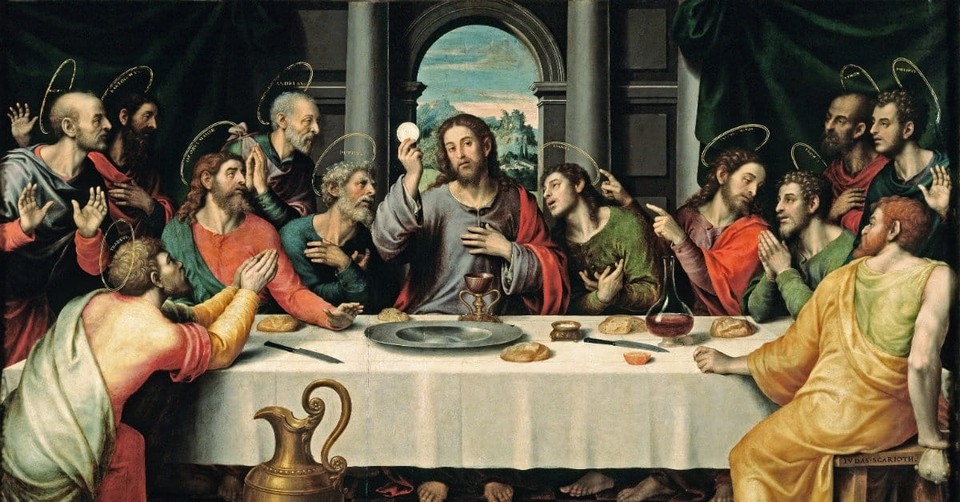Why the Doctrine of Justification by Faith Alone Matters

One of the five rallying cries of the Reformation was the statement that we are saved by faith alone — sola fide! These words declared that salvation does not come from looking at our own works of righteousness, but from looking outside ourselves to another, to the person and work of Jesus Christ. This statement grew out of a desire to return to the biblical text and to the teachings of the early church fathers, a cry to reform the church and return it to biblical orthodoxy.
Centuries have passed since the Reformation, and we may wonder: Does sola fide still matter today? Is the notion of justification by faith alone just a relic of days gone by, reflecting a nostalgia for a previous time? As will be evident throughout this book, I believe that the Reformation cry of sola fide should continue to be taught and treasured today because it summarizes biblical teaching, and God’s Word never loses its transforming power. The Word of God speaks in every era and in every place. While some may hold on to sola fide to uphold tradition, I believe we should hold on to the tradition of sola fide because it accords with the Word of God. Justification by faith alone isn’t the product of rigid and brittle orthodoxy. It speaks to the minds and hearts of people all throughout history because it tackles one of the fundamental questions of our human condition: How can a person be right with God?
…We must never forget why its biblical truth matters to us today. While some may wish to talk about theology for the sake of theological disputation, the central issue…is personal. We are talking about standing before God on the last day, on the day of judgment, and sola fide answers that question: How will we stand before the Holy One of Israel?
Still, one might agree that how we stand at the final judgment is a crucial question and think at the same time that justification by faith alone should be abandoned. After all, sola fide is easily misunderstood, and because of this they believe that the slogan should be jettisoned. Why appeal to a slogan that needs to be qualified and explained carefully to avoid abuse? This objection, however, applies to every theological truth. We don’t surrender the term Trinity, even though it is frequently misunderstood. Instead, what we mean by the word Trinity must be carefully explained and qualified. Theologians, scholars, and pastors must carefully unpack what that term means and what it doesn’t mean, so that those who listen to them don’t think Christians are tritheists. Yet despite these challenges, we don’t abandon the word just because it is easily misinterpreted. Christians throughout history have believed that certain words and phrases are helpful in summarizing and enshrining crucial theological truths. We should not surrender a formula even though it is sometimes misunderstood or wrongly explicated, for the slogan expresses a vital theological truth, one that is worth cherishing and guarding.
Sometimes Reformed Christians are accused of focusing too much energy on guarding and protecting doctrines and traditions like justification by faith alone. Perhaps, at times, we are guilty of overemphasizing doctrinal fidelity to the neglect of cherishing the truth we confess. Yet guarding the faith is certainly a noble and biblical endeavor. Jude calls us to such in no uncertain terms (Jude 3), and both Galatians and 2 Timothy emphasize that we must guard the gospel and uphold it even when others deny it. Still, we must beware that our efforts at guarding the gospel do not become more important to us than cherishing the life-giving freedom and joy the gospel provides to us. We guard the truth because we cherish it, and we cherish the truth because it is our life. When we are alone and quiet before God, we remember our many sins and our great unworthiness. In such moments we see and sense the glory and beauty of sola fide; we confess “nothing in my hand I bring, simply to the cross I cling.” We realize that we can enter boldly into God’s presence only because of the grace of God, through faith in the righteousness of Christ alone.
Indeed, sola fide is important because it reminds us of the grace of the gospel, testifying that ultimately our salvation, our standing and acceptance before God, is entirely of the Lord. The works of human beings cannot accomplish salvation. Thus, sola fide gives all the glory to God, so that no one will boast in human beings (1 Cor 1:31). Sola fide reminds us that everything we have is a gift, that every benefit we enjoy is granted to us by God (4:7). The five solas of the Reformation are closely tied together, but when it comes to sola fide there is an especially close link with sola gratia and solus Christus. Faith looks to another for salvation, so that salvation is by grace alone and in Christ alone. It is my hope that this book will both guard and cherish the gospel so that we look to Christ as our only hope and give thanks daily for the grace that is our only source of strength.
[Editor’s Note: This excerpt is taken from Faith Alone: The Doctrine of Justification by Thomas Schreiner Copyright © 2015 by Thomas R. Schreiner. Used by permission of Zondervan. www.zondervan.com.]
Thomas Schreiner (PhD, Fuller Theological Seminary) is James Buchanan Harrison Professor of New Testament and associate of dean of Scripture and interpretation at The Southern Baptist Theological Seminary in Louisville, Kentucky. The author of numerous books, he is a preaching pastor at Clifton Baptist Church in Louisville, Kentucky.
Photo courtesy: Wikimedia Commons
Publication date: October 23, 2015
Originally published October 23, 2015.







